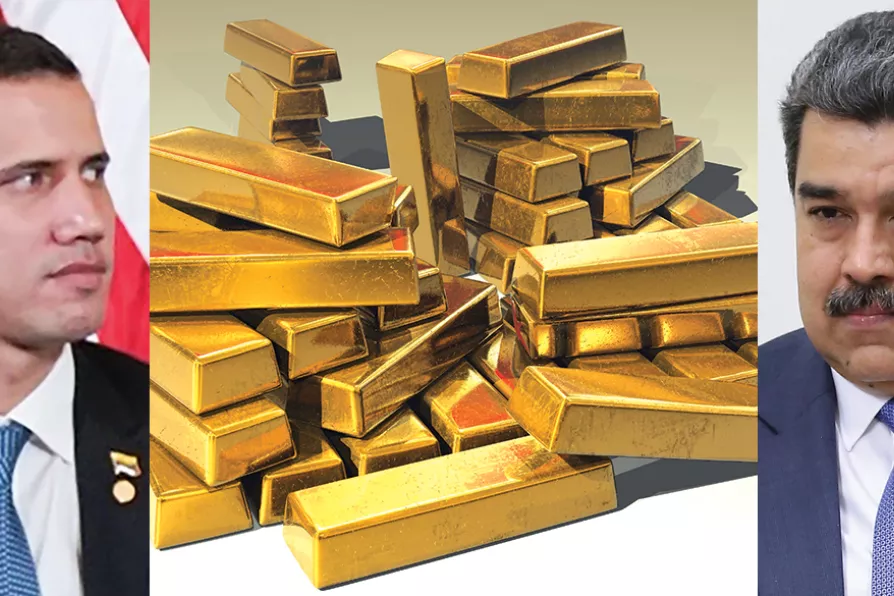The PM says Mandelson 'betrayed our values' – but ministers and advisers flock to line their pockets with corporate cash, says SOLOMON HUGHES

 (L to R) Juan Guaido and Nicolas Maduro
[(L to R) The White House/CC - Stevebidmea/CC - khamenei.ir/CC]
(L to R) Juan Guaido and Nicolas Maduro
[(L to R) The White House/CC - Stevebidmea/CC - khamenei.ir/CC]
WITH the recent announcement that Venezuela has succeeded in its legal battle to recover €1.3 billion illegally confiscated by Portuguese bank Novo Banco, the fight to return Venezuelan gold held by the Bank of England must be reinvigorated, with the labour and progressive movements supporting the Venezuela Solidarity Campaign’s demand that this gold must be returned to its rightful owners — the Venezuelan people.
The Bank of England is currently withholding 31 tons of gold bars (of the initial 99.2 tonnes) worth roughly £1.57bn, which the Venezuelan government, through its Central Bank of Venezuela (BCV), deposited there for safe keeping initially in 1980.
These gold reserves would be a vital resource for Venezuela to boost its recent economic upturn and fund public services after the global Covid crisis.

International solidarity can ensure that Trump and his machine cannot prevail without a level of political and economic cost that he will not want to pay, argues CLAUDIA WEBBE

The global left must be unwavering in it is support for Venezuela as Washington increases its aggression, and clear-eyed about the West’s cynical motives for targeting it, says CLAUDIA WEBBE

The US is desperate to stop Honduras’s process of social and democratic change, writes TIM YOUNG

Calls have been made for the return to Venezuela of a two-year-old girl currently being held in the US, after being separated from her family by immigration officials, reports SUSAN GREY










